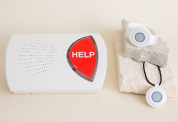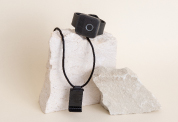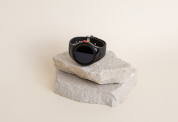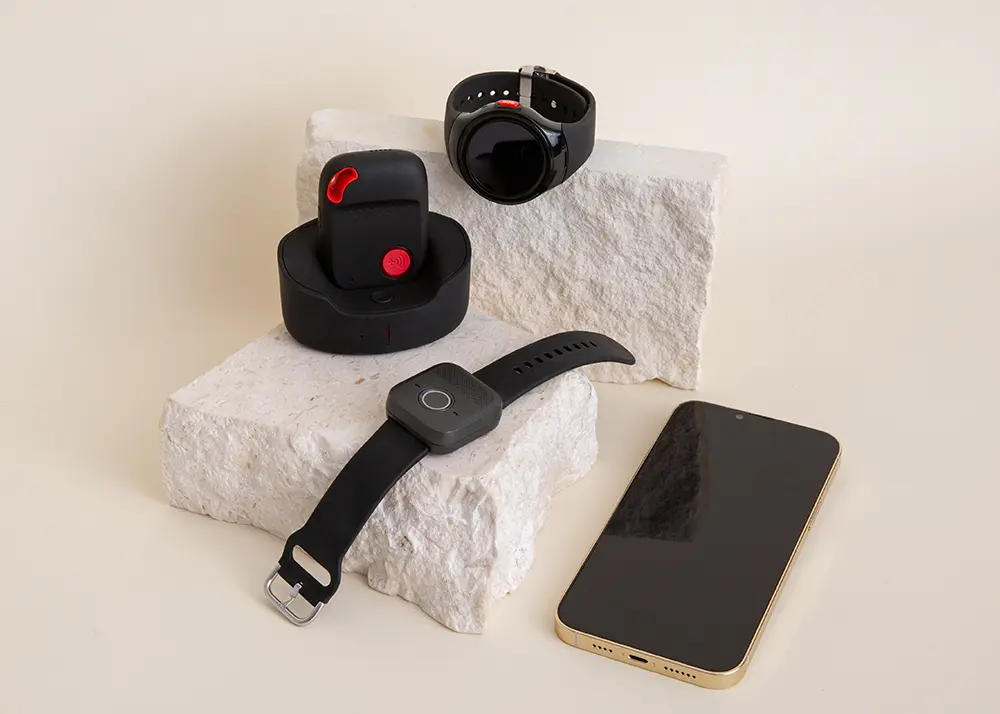SOS Mobile GPS Medical Alert With Caregiver Tracking: Find Dementia Patients Who Wander
May 28, 2019
In 1967, a New York City local TV director coined this iconic phrase: “It’s 10pm. Do you know where your children are?” Many of those children are now grandparents, and the tables have turned. It seems like every week, we see a news story about a senior adult who became lost/disoriented away from home. Too often, the searchers can’t fine them in time. That doesn’t have to happen.
Bay Alarm Medical is the only medical life alert system company that offers a caregiver tracking option with our SOS Mobile GPS device.
“Wandering” is a Danger to People with Cognitive Problems
Wandering is a common symptom of Alzheimer’s and other forms of dementia, but it may also affect people with autism, head injuries, strokes, and other brain syndromes. The Alzheimer’s Association reports that up to 60% of dementia patients exhibit wandering behaviors, and are apt to leave home on foot or in an available vehicle.
If they aren’t found within 24 hours, 50% of them suffer serious injuries or death.
“Sundowning” is associated with wandering. It’s a type of late-day confusion that affects Alzheimer’s patients and those with other forms of dementia. The Mayo Clinic notes that late afternoon can bring back memories from long ago, when the senior was responsible for picking up kids from school, heading home from work, and other routine activities.
When those memories are triggered, patients may leave home or even a long-term care facility, thinking they’re on an urgent errand. They quickly become lost, disoriented, and in danger. Sadly, wandering and sundowning often end in tragedy for the patients and their families.
- An 82-year-old woman with dementia died from apparent exposure to cold after wandering away. Searchers found her in a wooded area less than 100 feet from her home.
- A 65-year-old man with dementia wandered away from his care facility on Nov. 2, 2018. A news story from Feb. 6, 2019 showed him as still missing.
- An 83-year-old man with dementia drove away from his farm. After a 3-day search, authorities found his body near his pickup truck.
Notify authorities immediately if a loved one wanders away. It helps if you can provide searchers an idea of where the person might be headed. Try to remember their routines from long ago. For example, if your mother always had morning coffee with a neighbor down the street, check that home and yard. If your father was a Little League coach, he may well be trying to return to the ball field.
Do You Know Where Your Parents or Grandparents Are?
Naturally, it takes time to search all the “maybe” destinations, and every minute counts – particularly in extreme weather conditions. A GPS medical alert with caregiver tracking can help you locate a missing person more quickly, so they can be moved to shelter and given medical attention.
Bay Alarm Medical’s home medical alert device with GPS offers protection on-the-go. The optional “caregiver tracking” platform portal works on your computer, tablet, or smart phone. Find your loved one’s current location and view location history via the history function. For added safety, you can set up geofencing and receive an alert when they leave home or a defined geographic area.
Remember that even otherwise healthy adults (and children) can get in situations where they need to call for help. Anyone is vulnerable to an accident or medical event that leaves them disoriented and in danger.
Try it for 30 days – risk free! Call us at 1-877-522-9633 or contact us online to learn more.
We thought you might like:
Do You Need A Mobile GPS System?
Early Detection & Treatment of Alzheimer’s Disease Can Improve Quality Of Life
How To Talk To Your Parents About Medical Alert Systems








